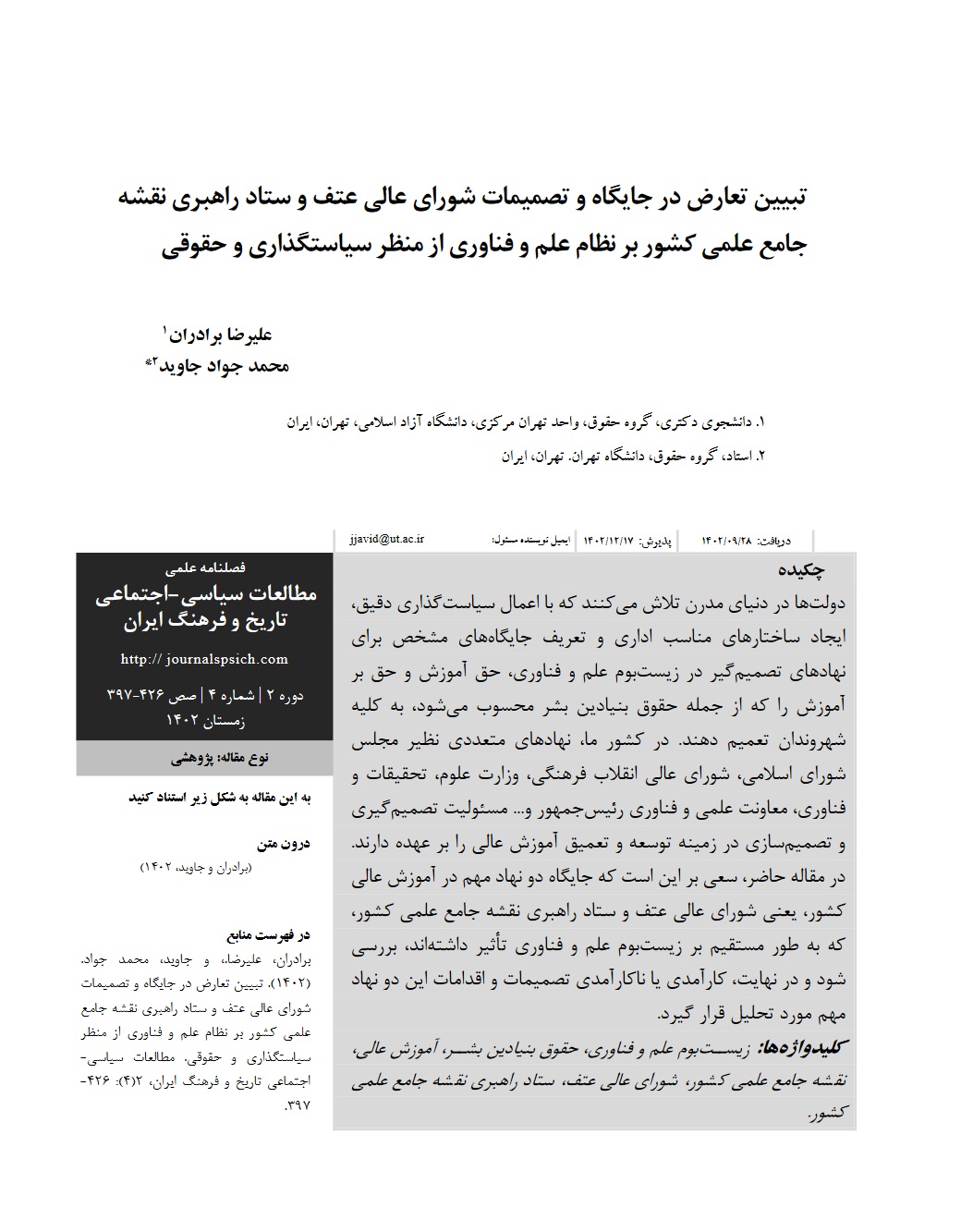Explaining the Conflict in the Position and Decisions of the Supreme Council of Science, Research, and Technology and the National Steering Committee for the Comprehensive Scientific Plan of the Country on the Science and Technology System from a Policy and Legal Perspective
Keywords:
Science and Technology Ecosystem, Fundamental Human Rights, Higher Education, Comprehensive Scientific Plan of the Country, Supreme Council of Science, Research and Technology, National Steering Committee for the Comprehensive Scientific Plan of the CountryAbstract
In the modern world, governments strive to extend the right to education, considered a fundamental human right, to all citizens by implementing precise policies, establishing appropriate administrative structures, and defining specific roles for decision-making bodies in the science and technology ecosystem. In our country, multiple institutions, such as the Islamic Consultative Assembly, the Supreme Council of the Cultural Revolution, the Ministry of Science, Research, and Technology, and the Vice Presidency for Science and Technology, are responsible for making and shaping decisions for the development and deepening of higher education. This article aims to examine the roles of two significant institutions in the country's higher education system (the Supreme Council of Science, Research, and Technology and the National Steering Committee for the Comprehensive Scientific Plan of the Country) that have directly impacted the science and technology ecosystem. Ultimately, the effectiveness or ineffectiveness of the decisions and actions of these two important institutions will be analyzed.
Downloads








